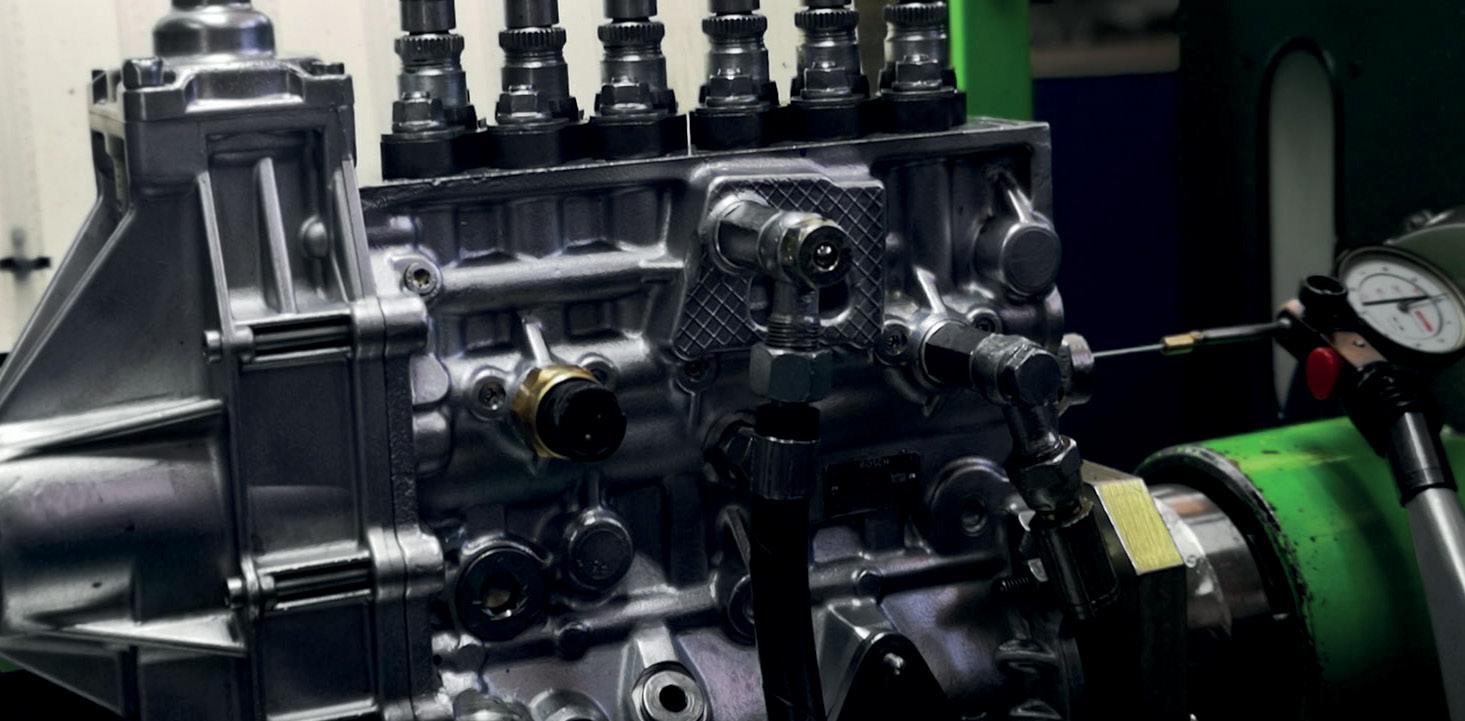
2 minute read
Where to service your diesel vehicle
Hugo Grobler, national franchise manager at ADCO, says the difference in diesel service begins at the door of a franchised facility and the financial commitment it has made in technology. ‘Typically this investment at an ADCO franchise could be up to R20 million or even more for state-of-the-art facilities,’ he says.
‘Diesel technology, like many other technical sectors, is constantly evolving. Emission controls have become increasingly important, fuel quality has improved, and engines have been revolutionised. Given the changes, spending the money to obtain the benefits from fuel economy to reliability, torque and longevity, and then taking a vehicle to a technician who can only do a basic service could be expensive in the long run.’
CLEAN ROOMS
The primary difference in quality engine maintenance lies within the facilities and diagnostic equipment available. Only specialist facilities have clean rooms where injectors, the heart of any diesel engine are finely calibrated. Add expertise in brands such as Bosch, Denso, DELPHI, Hartridge, Stanadyne, Yanmar and Zexel, combine these brands with professional technicians specialising in fuel injection and related services, and it soon becomes apparent why going to experts reaps dividends.
‘It is crucial for motorists opting for diesel power to understand that components, and not just fuel, are consumables. Crucial parts have service intervals, and pumps and injectors should be removed, cleaned and calibrated so that the possibility of breakages and replacements is avoided,’ says Grobler.
‘One of the keys to reduced environmental emissions, reduced engine wear and reliability has been the evolution of fuel. Sulphur is a lubricant used in diesel fuel and is vital to lubricating engine components. The reduction of sulphur in fuel has meant the addition of other additives to replace it.’
CONTAMINATION
‘Older mechanical diesel systems could tolerate a small amount of contamination before requiring servicing and repair. Today, however, the differences in tolerances between the old and the new have forced a new approach. A common rail system is now running at about 2400 bar, and the tolerances involved are measured in microns. Any contamination infiltrating the system, therefore, has the potential to cause significant, or even irreparable damage. Cleanliness is essential,’ Grobler says.

A 16 cylinder in-line diesel pump at the ADCO facility
Injectors have different spray patterns and angles that are all engine-dependent — the fuel sprays from the injector into a ‘bowl’ located at the top of your engine’s pistons. Incorrect heights and timing of this spray can cause the emission of either white or black smoke from the engine. ‘Diesel that is not completely burned can then run down the side of a piston, wash the engine oil away and result, ultimately in ring and sleeve damage.’
IMMEDIATE ACTION
Turbos, although common in most cars, are also serviceable parts, stresses Grobler. Service interval recommendations made by manufacturers should be adhered to. ‘Smoke belching from an exhaust, regardless whether it is white or black, should be regarded as a warning sign of serious things to come. Immediate action by specialists can avoid major damage and large repair bills,’ concludes Grobler.







